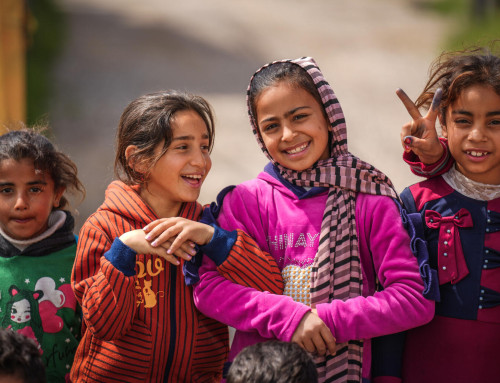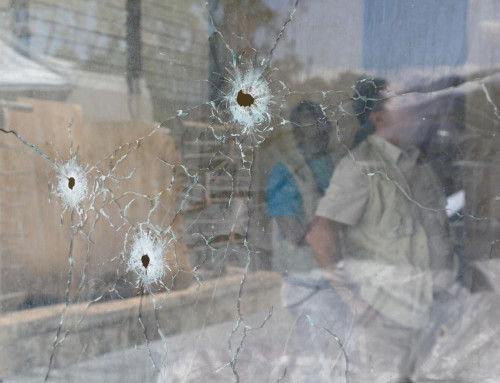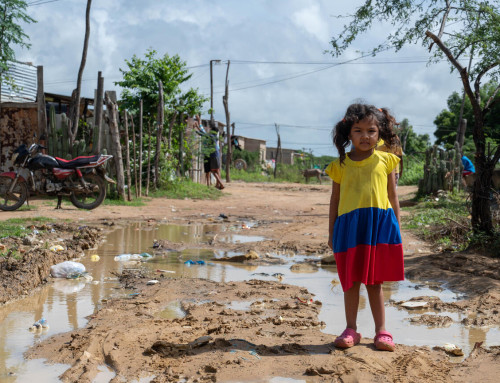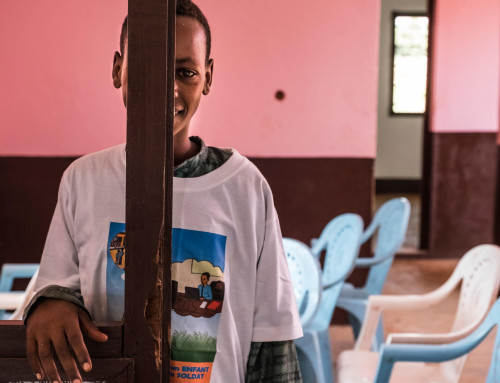Statement by Ms. Virginia Gamba, Special Representative of the Secretary-General for Children and Armed Conflict – Virtual Open Session of the Peace and Security Council of the African Union on Children Affected by Armed Conflict in Africa
18 August 2022
Mr. Chair,
It is an honour for me to address the Peace and Security Council of the African Union on the theme of children affected by armed conflict in Africa. I look forward to regular briefings, and further engagement with this Council on a regular basis, within the framework of the Joint UN-AU Framework for Enhanced Partnership in Peace and Security.
This open session is a testament to the close cooperation between the African Union and the United Nations, and of our common determination to end and prevent violations against children in conflict situations. Both our Organizations have made child protection a priority. Together, I believe we can deliver peace and security for children.
I am particularly glad to engage with you today, and I welcome the breadth of the work done by the African Union on child protection, in particular the recent adoption of the child protection policies in the African Peace and Security Architecture and in African Peace Support Operations. The launching in 2021 of the Africa Platform on Children Affected by Armed Conflicts further demonstrates the African Union’s commitment to child protection. I look forward to contributing to both initiatives, and I would like to propose to brief the African Platform at a date of their convenience.
Last July, I presented the report of the Secretary-General to the Security Council on the situation of children affected by armed conflict covering the year 2021. The report presents a contrasting picture of the situation of children in situations of conflict. Significant progress has been made in ending and preventing violations, notably by the signature of action plans with parties to conflict, such as the signature in September 2021 of action plans with two factions of the Platform armed group in Mali. However, the number of grave violations against children remains unacceptably high globally, with over 23,900 violations verified by the United Nations in 21 situations on the children and armed conflict.
The Secretary-General expressed his concern about the situation of children in Ethiopia and Mozambique, and decided to include these two situations on the agenda of children and armed conflict. I and the United Nations on the ground have already started engaging constructively with these respective governments to support the prevention of violations and enhance national capacities.
Conflict escalation, the multiplication of armed actors, the use of mines, improvised explosive devices, explosive remnants of war and explosive weapons in populated areas, intensified humanitarian crises, and violations of international humanitarian law and international human rights law had a severe impact on the protection of children. Cross-border conflicts and intercommunal violence affected children, in particular in the central Sahel and Lake Chad basin regions, while coups and takeovers aggravated the situation of children in a number of situations.
Faced with this situation, I believe in action and in joint action. Together we can act to protect children and deliver a safer future for them.
It is ever more important for the African Union and the United Nations to invest in prevention, as underlined by the Security Council in its resolution 2427 (2018). I will continue my existing engagement with the Central African Republic, Mali and Sudan to promote the prevention of grave violations against children, in particular through national prevention plans that can make child protection gains sustainable and long-lasting.
The protection of children is also to conflict prevention. Placing child protection at the core of mediation can help build engagement with parties to conflict, such as prioritising the release of children from armed forces and armed groups, and improve the chances of sustainable peace. In recent years, child protection provisions have been successfully included in peace agreements in the CAR (2019) and South Sudan (2015 and 2018). I thus encourage the use of the Practical guidance for mediators to protect children in situations of armed conflict, launched by the Secretary-General in 2020, to further explore how best elements for the protection of children in situations of armed conflict can be integrated in ongoing and future mediation efforts in Africa. And I look forward to cooperating with the African Union on disseminating and making use of this important guidance.
The protection of schools and education is also a vital linchpin in the overall protection of children, as schools represent safe and child-friendly spaces. Through the Safe Schools Declaration and the commitments of hundreds of States, most notably the majority of African States, we can together make progress to make schools safer for children and guarantee their education.
I would like to end by underscoring that I, and my colleagues at the UNOAU who support my work with the AU, do look forward to deepening our cooperation through concrete engagement and measures. I again welcome this engagement with you today, and I look forward to speaking with you directly soon to further our joint work for children in Africa.
Thank you.





